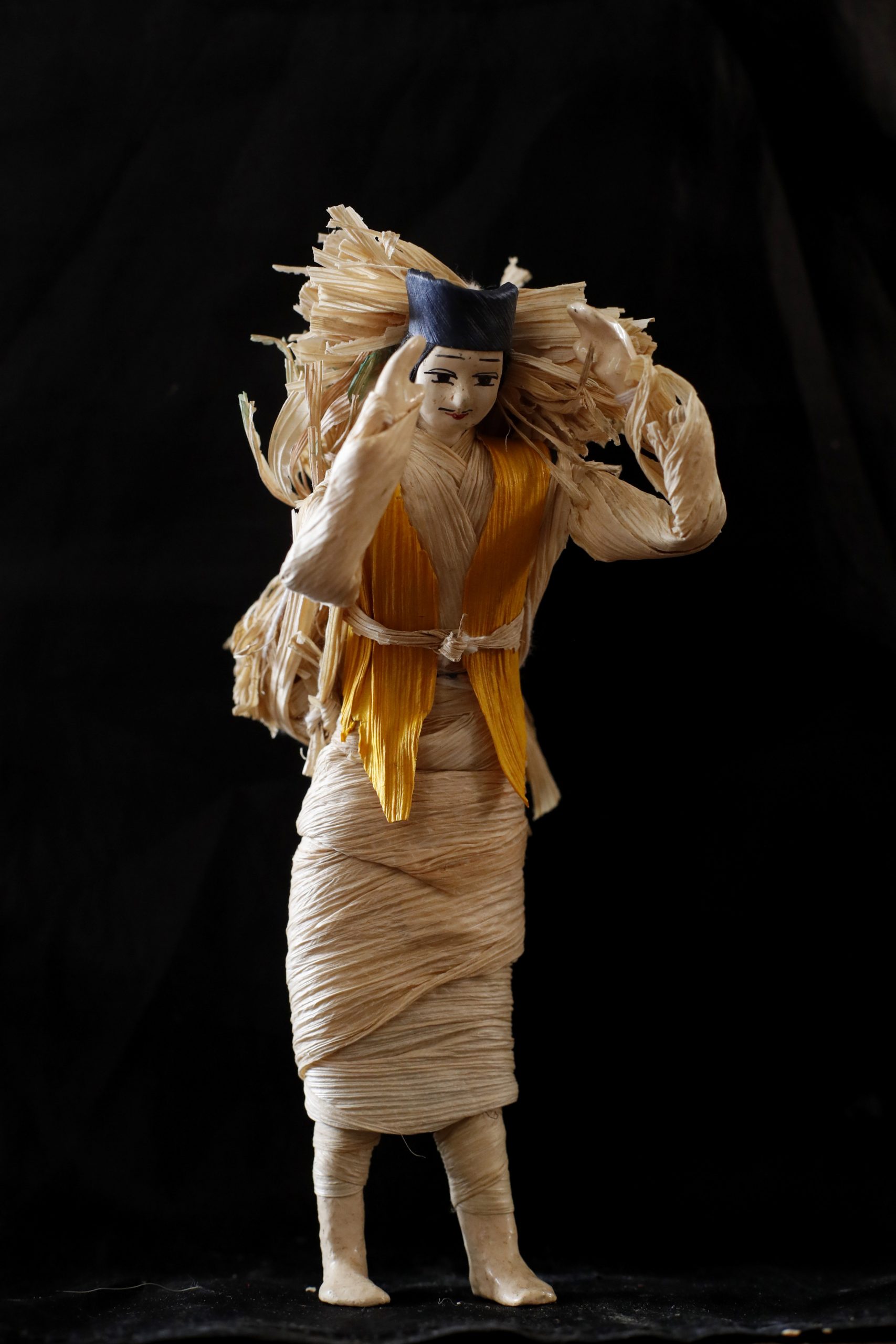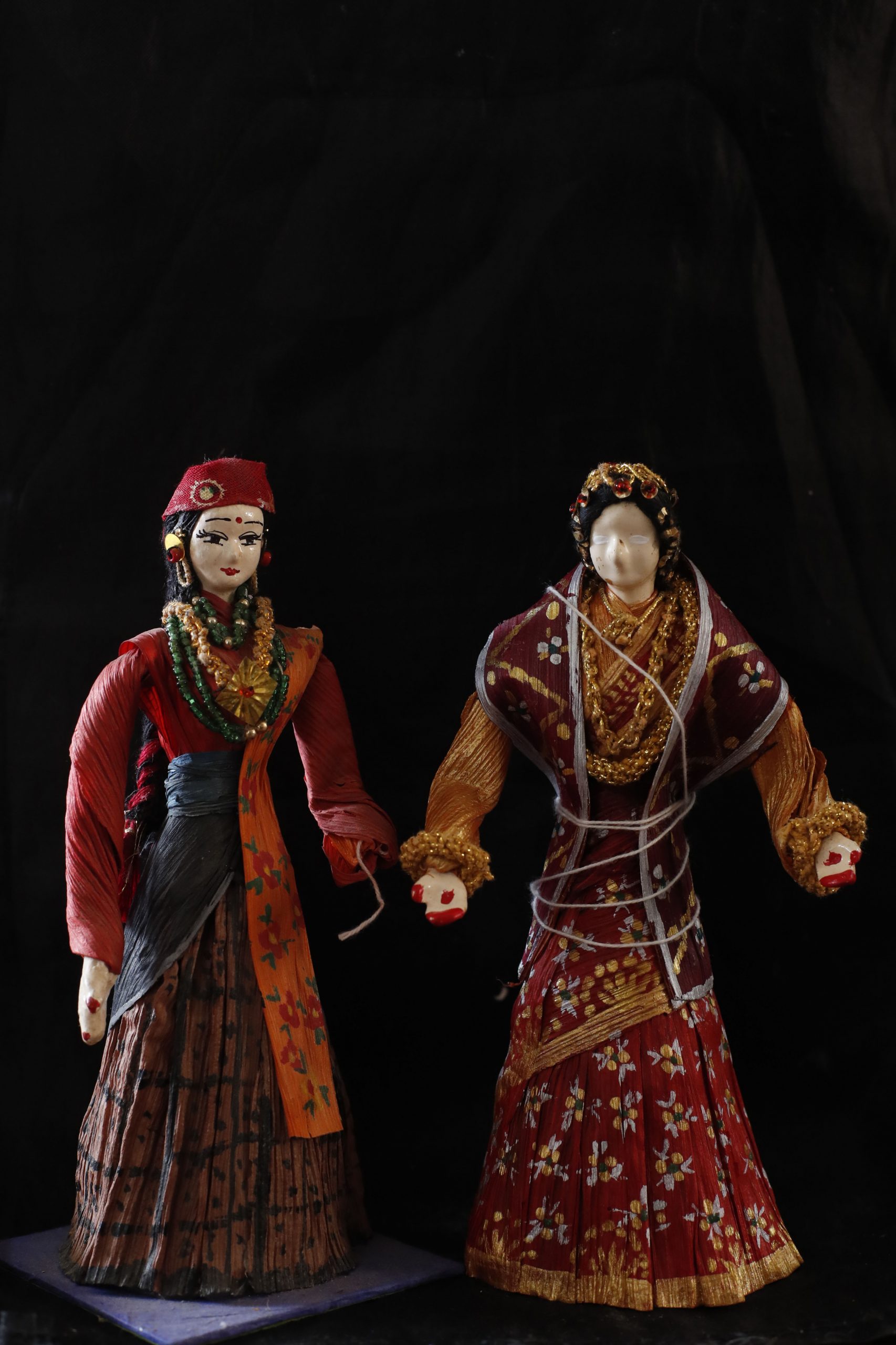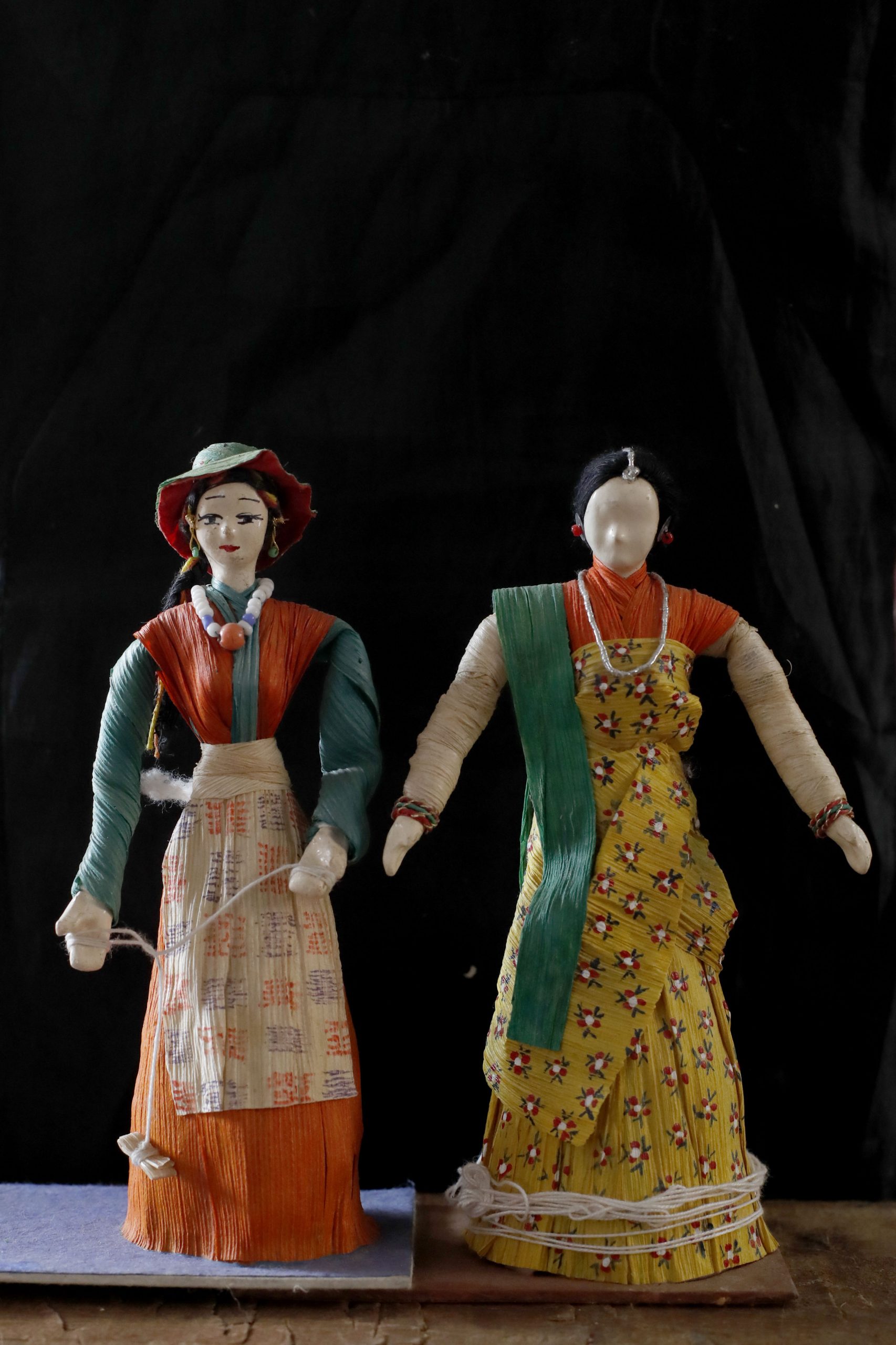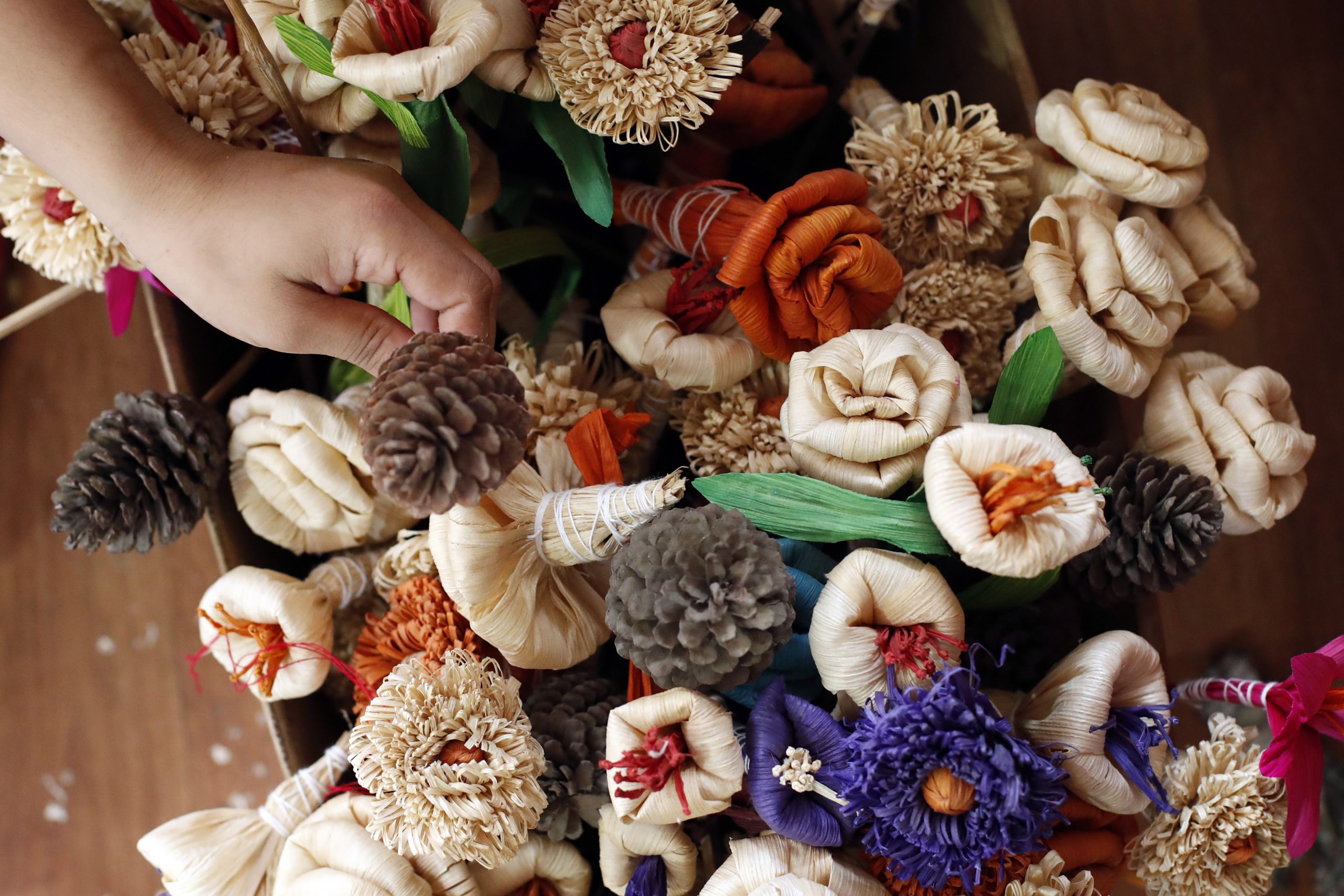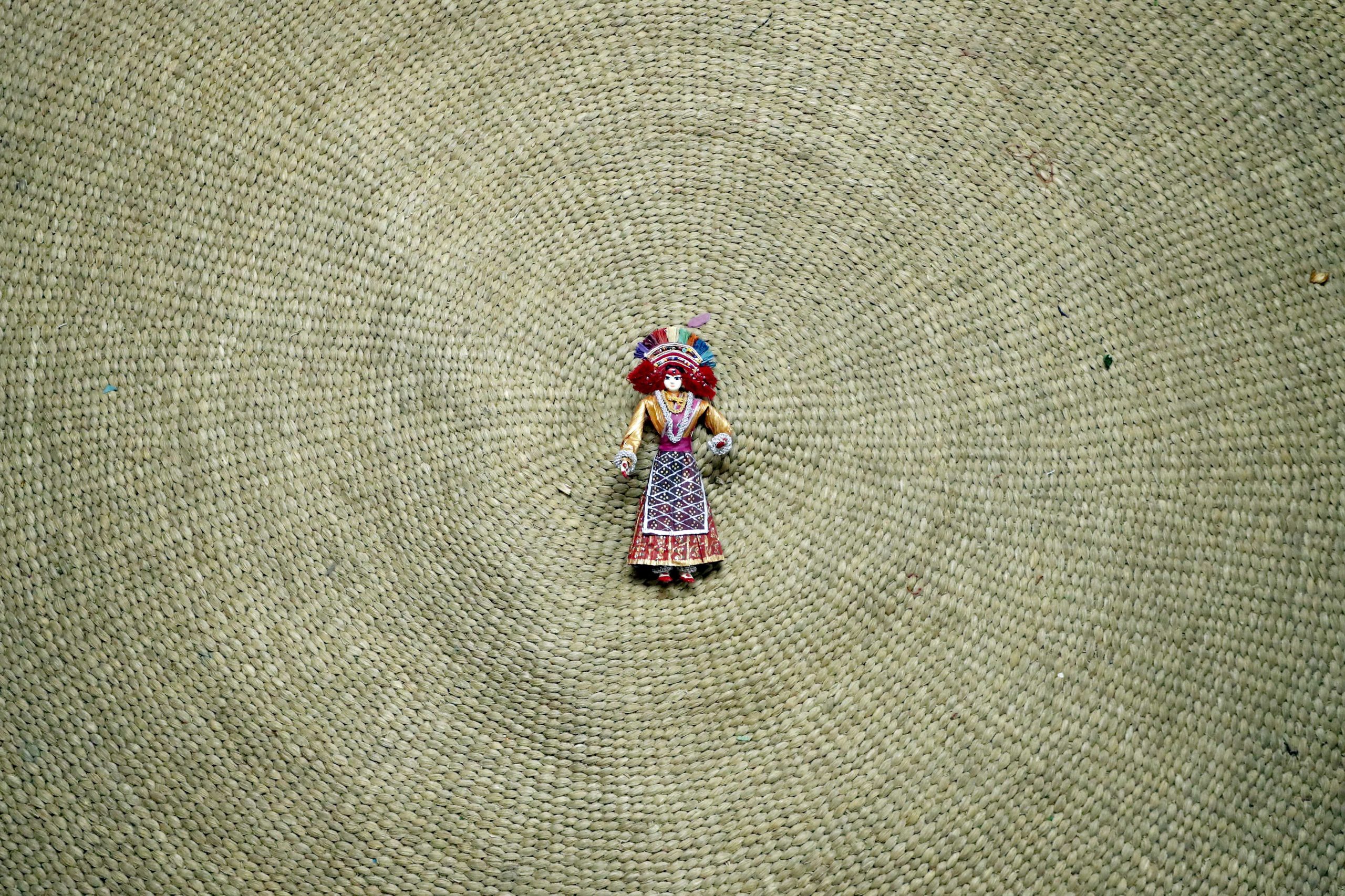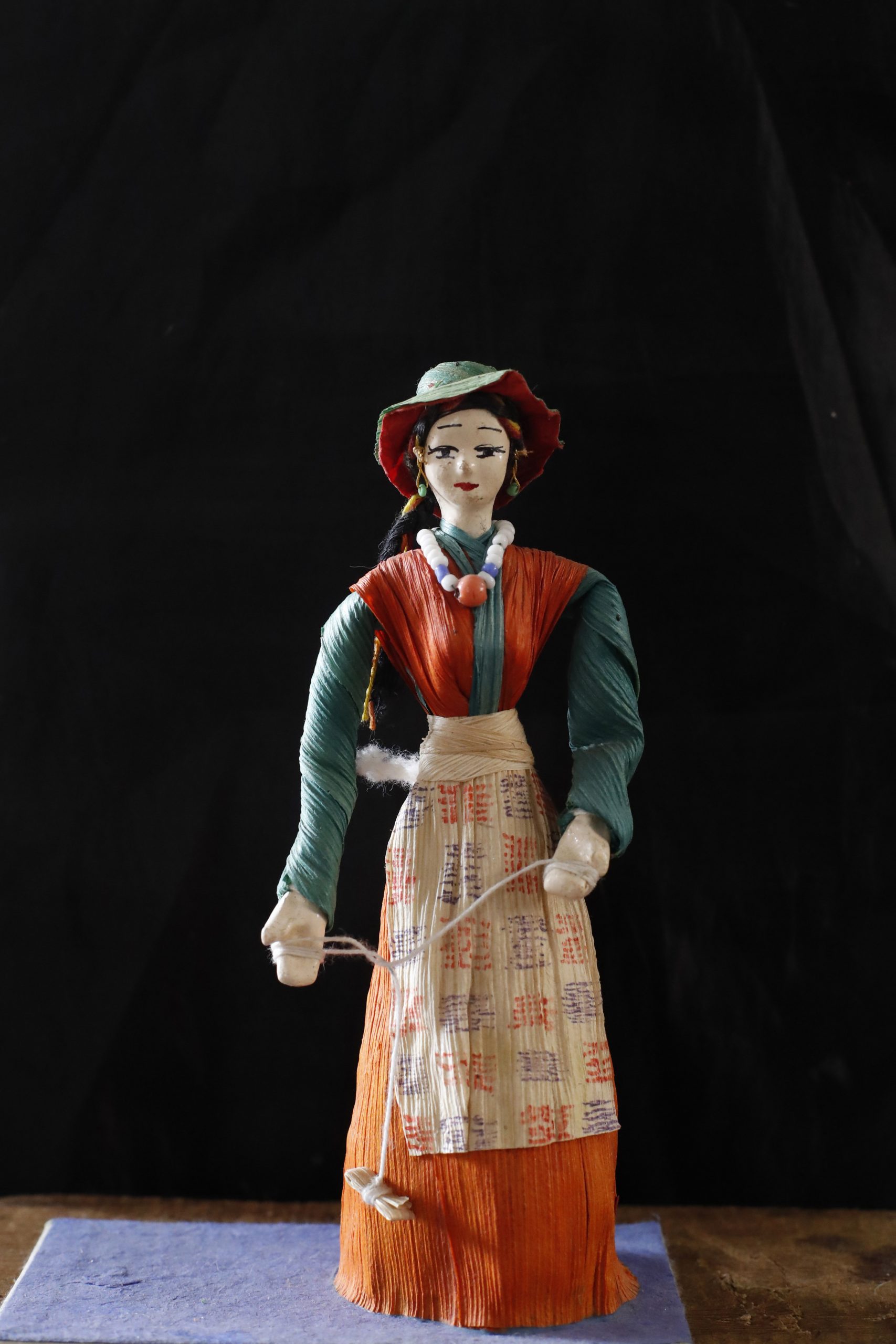Where dolls reflecting Nepalese ethnicities and costumes are made (photos)
Laxmi Nakarmi, who started with the help of three sisters, is still making the craft of manufacturing dolls from corn husks.

LALITPUR: Patan’s Hakha Chusika Nani Galli is reached after passing through two residences at the starting site, Sisters Creation and Cafe.
People also remember this cafe as a location to make dolls or dolls out of corn husks.
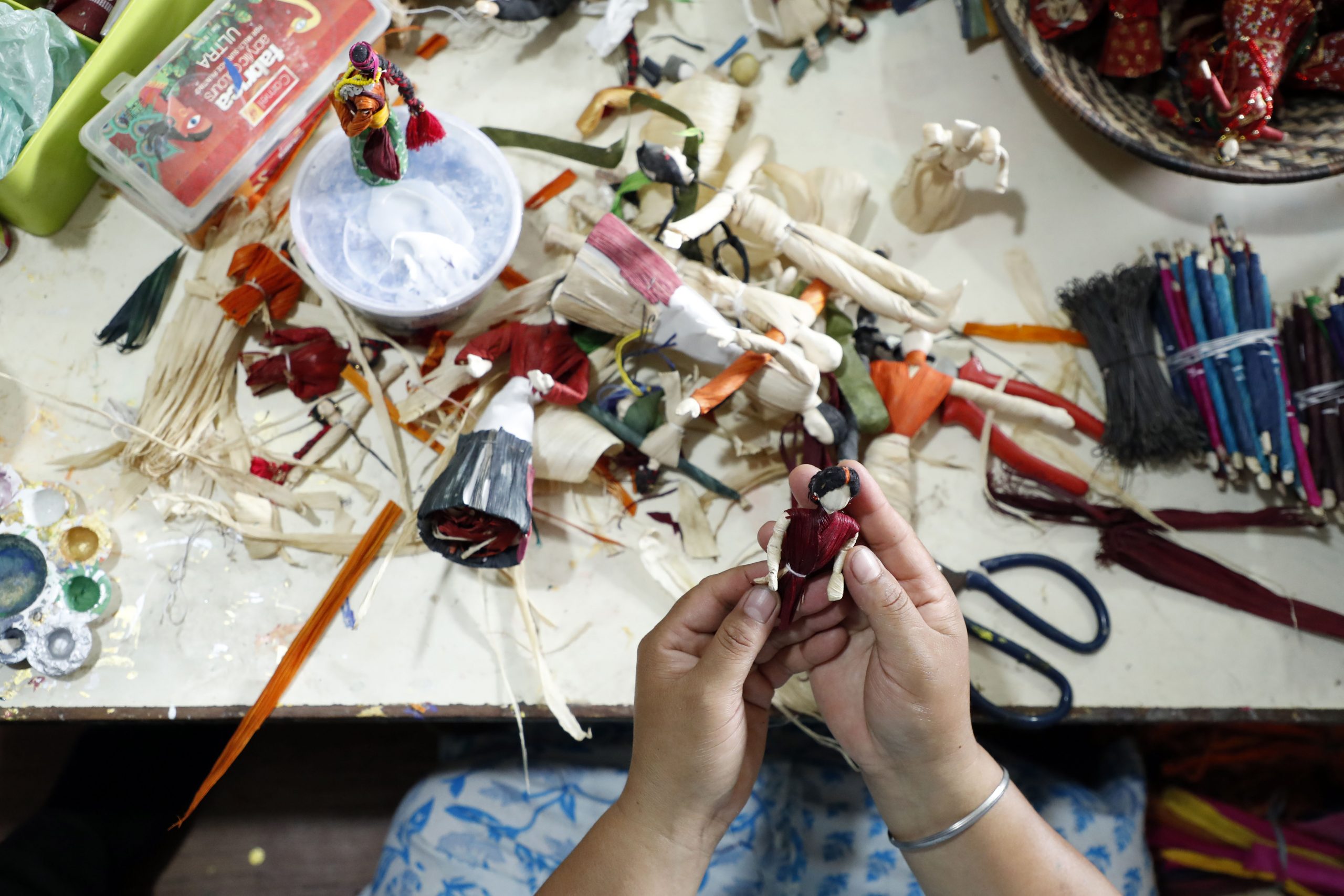
Laxmi Nakarmi, who started with the help of three sisters, is still making the craft of manufacturing dolls from corn husks.
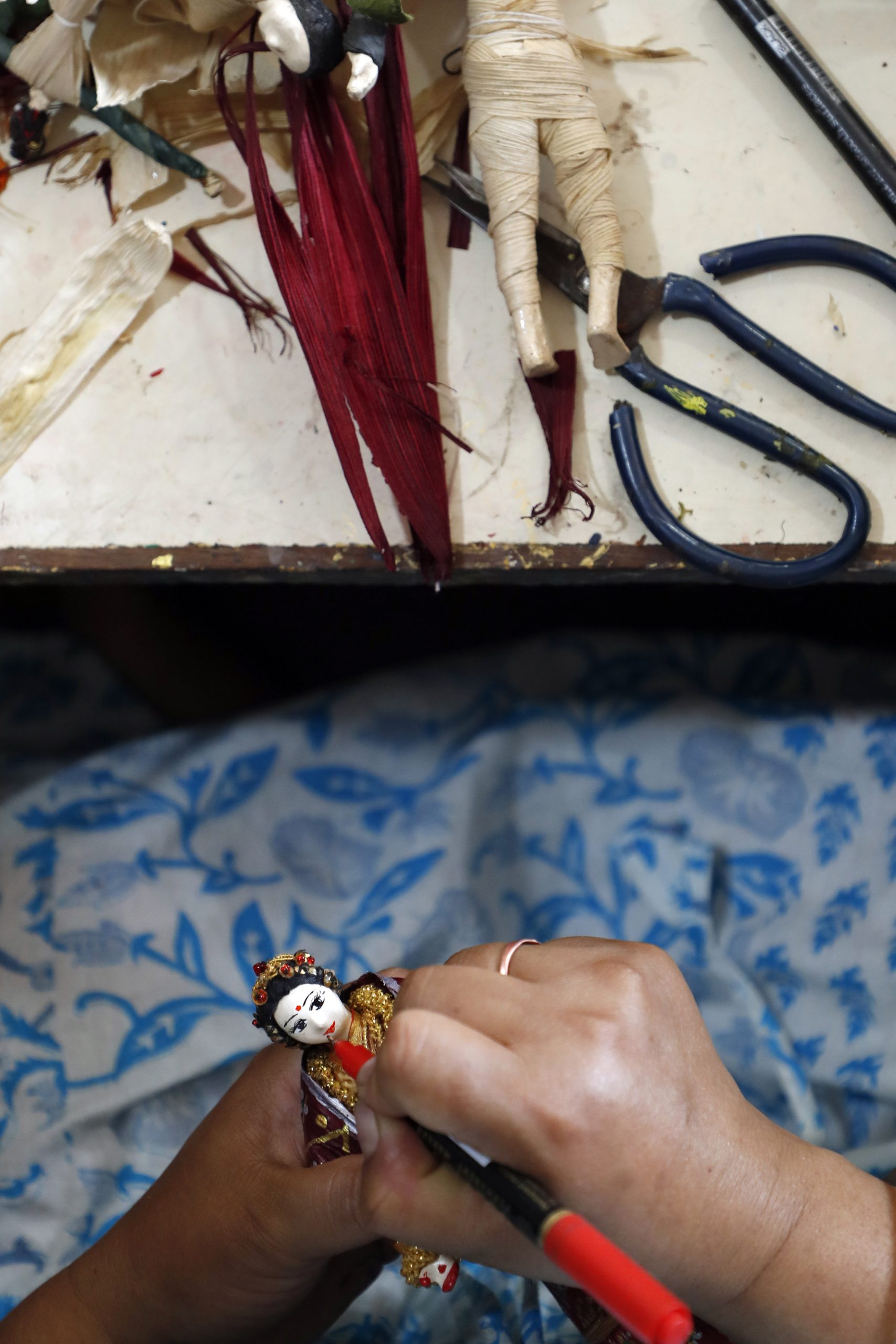
When she was 20 years old, Laxmi read in a magazine that some people in America were making dolls and various artworks from corn husks and started it with her sisters.
“In Nepal, corn husks are easily found and their cobs are also thrown away.” After I saw it being used in a magazine, we sisters started making dolls and different figures out of it.’ Lakshmi said.
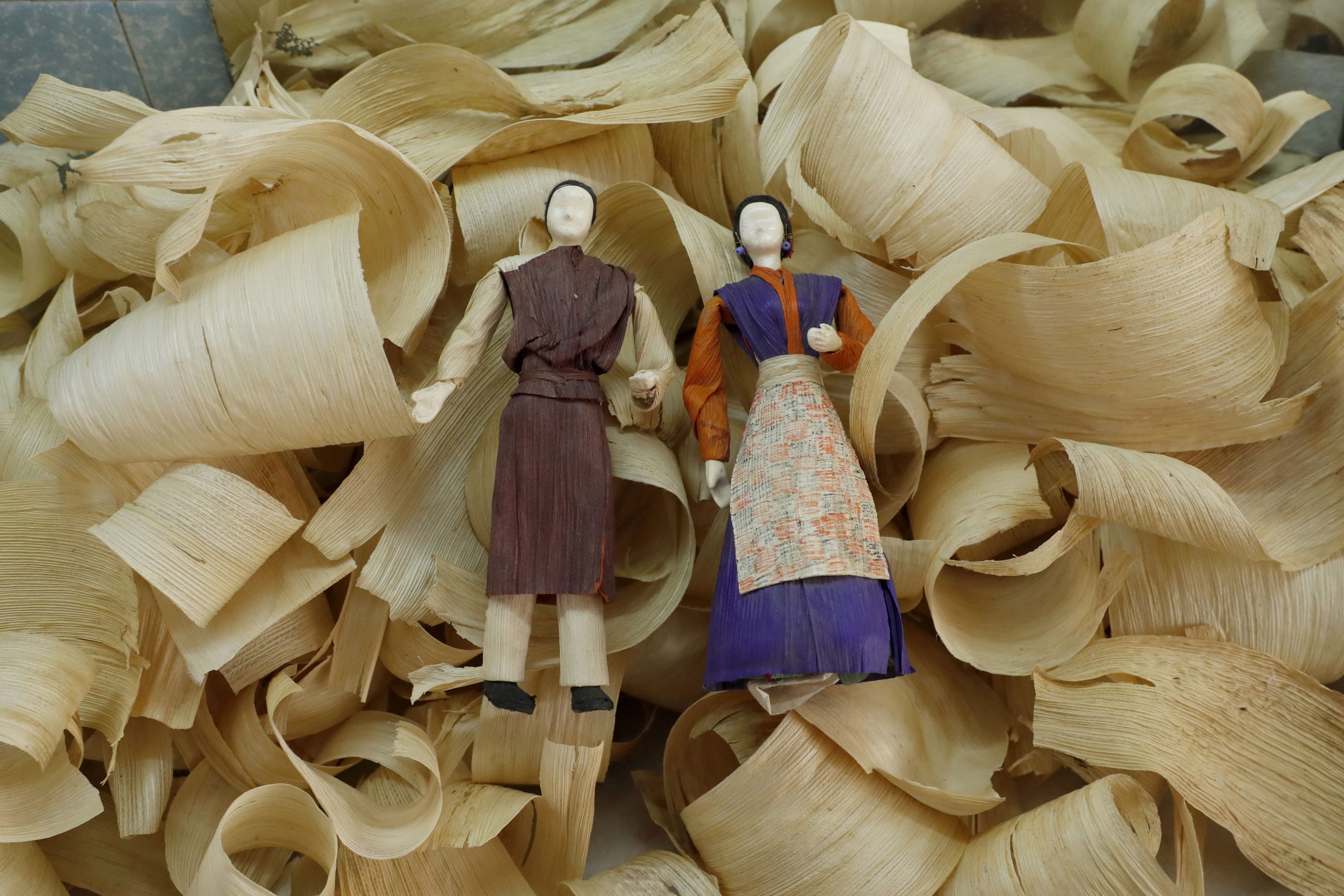
Even though she made some blunders when making dolls in the beginning, she learned from them and mastered her craft.
Since she began making dolls out of corn cob and husks three decades ago, her work has matured significantly. ‘I’m always up for trying new things. I created dolls that represent the Nepalese caste and their clothing. I’ve also manufactured items in response to consumer requests.’
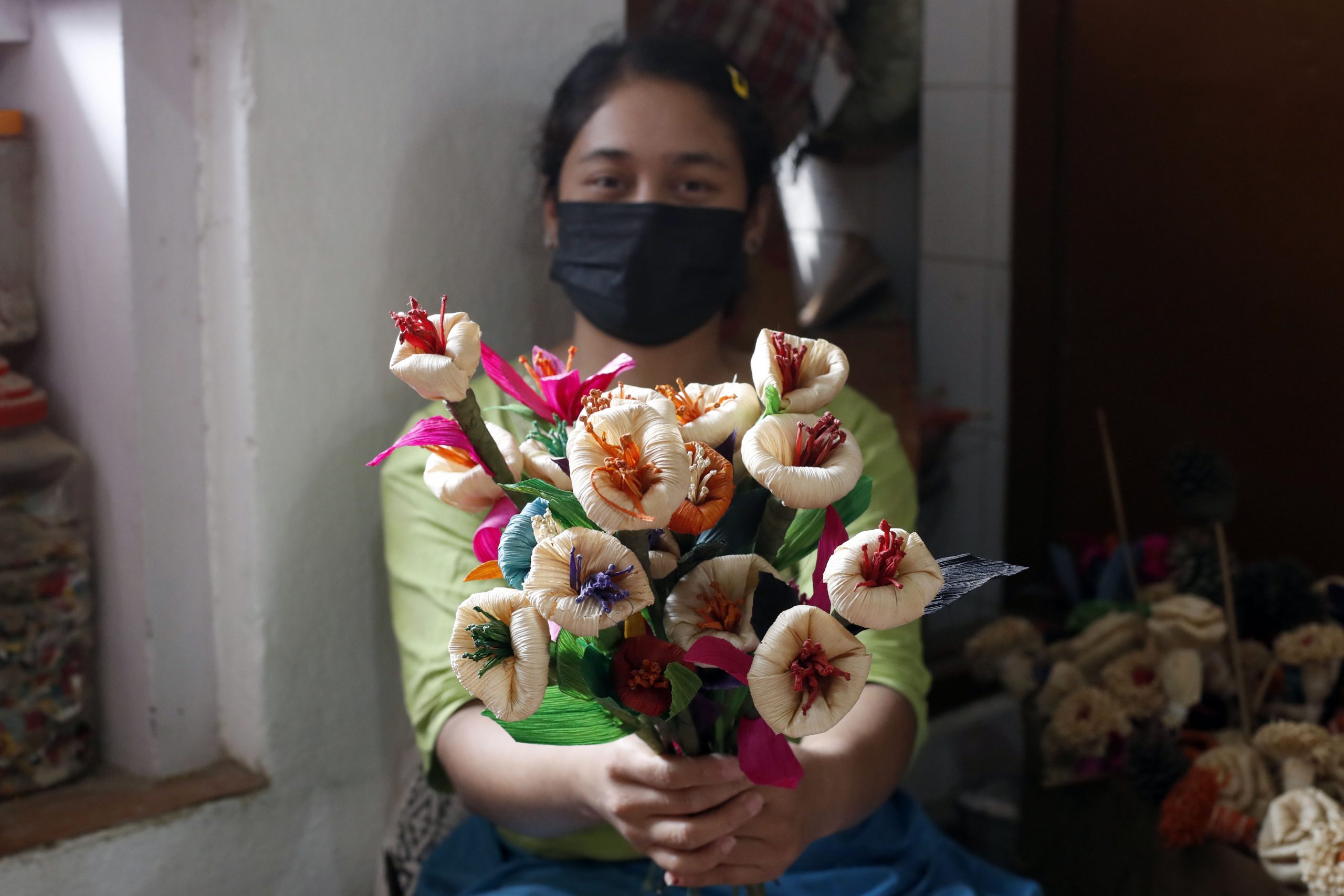
Although initially started by 3 sisters jointly, only she has directly continued it after marriage. Her 2 sisters are indirectly involved in his business.
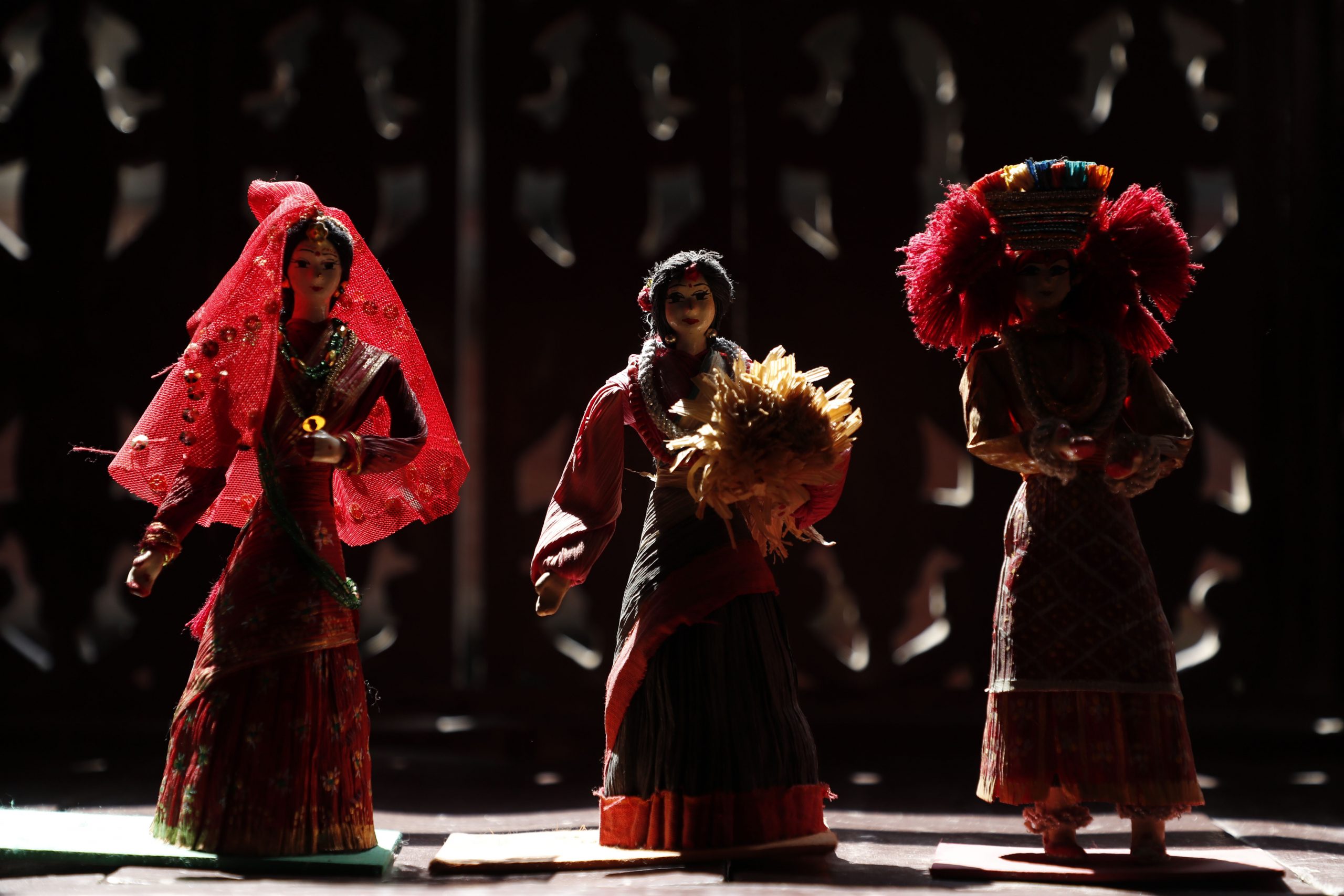
She now has 5 business associates. The majority of them are unable to speak or hear. All of them were trained here by Laxmi. ‘It was a little challenging for me at first, but now I can work quite effortlessly and rapidly.’ Sangeeta Sunuwar, who has been working here for seven years, described everything in sign language.
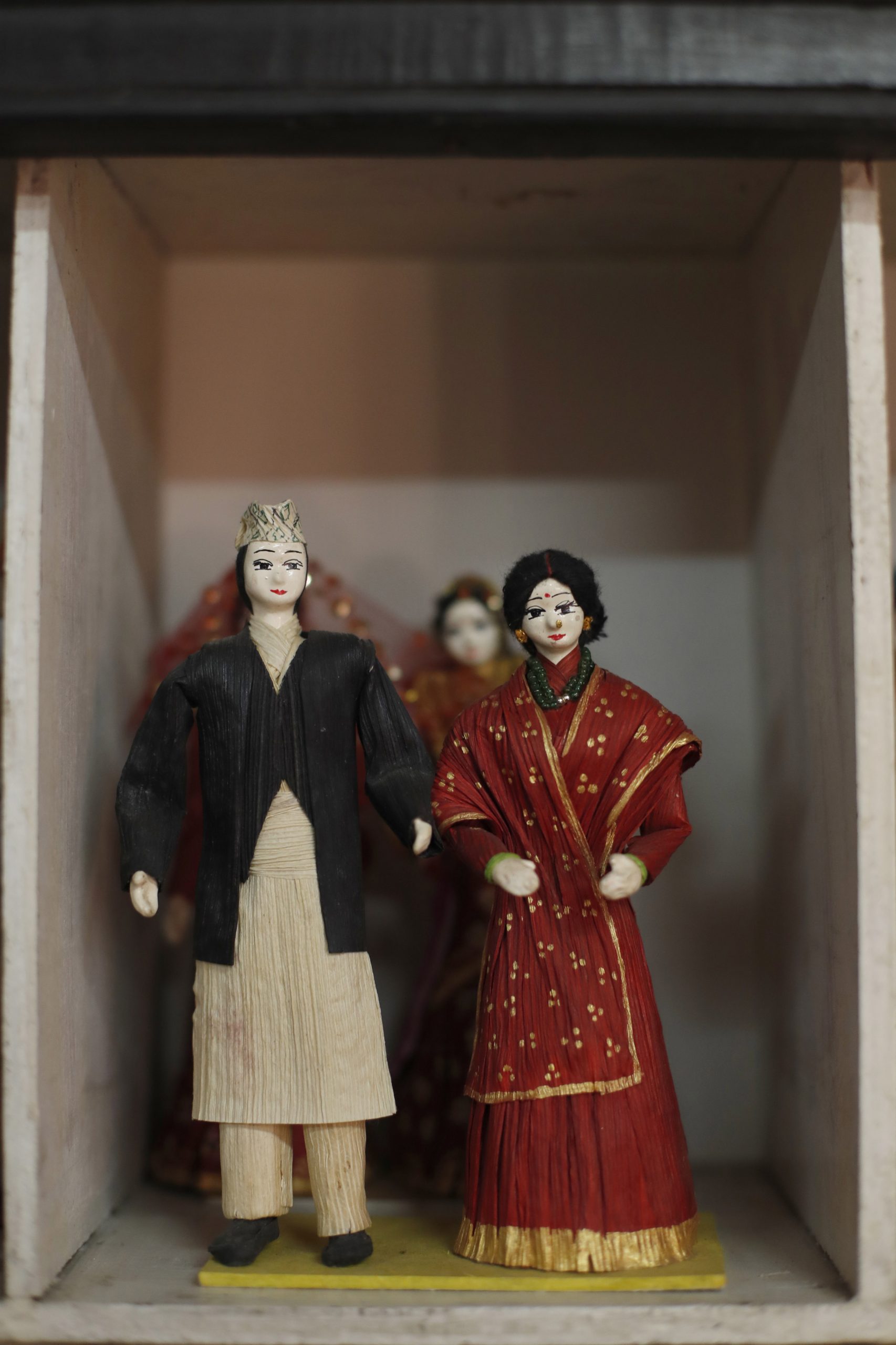
The main feature of the dolls made here is the use of reusable materials. Dolls are made using wood dust, corn husks and cob, cloth, folk paper, wire, etc. Here mainly: Dolls in ethnic costumes are made.
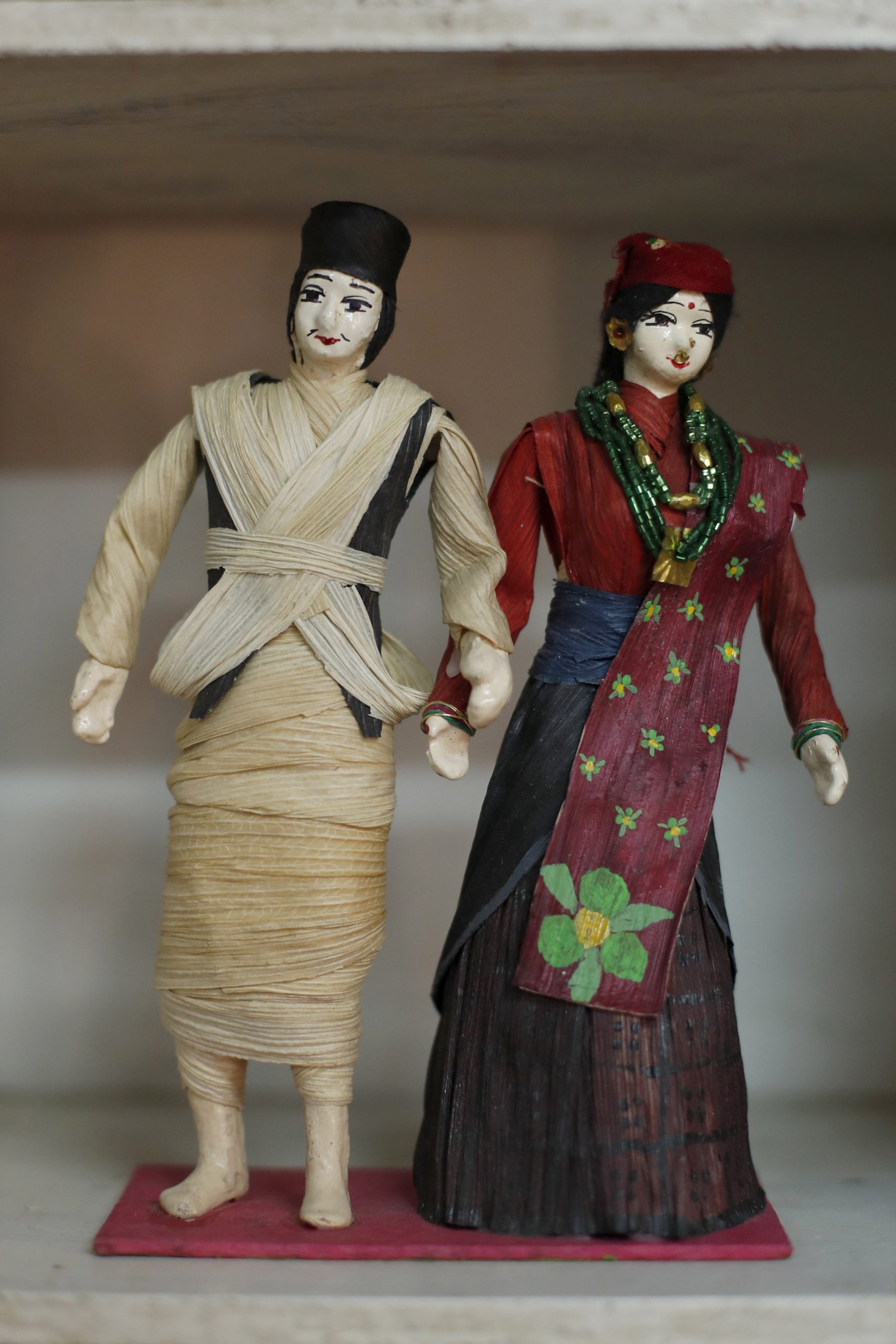
It takes one person up to 2 days to prepare, but a small doll is prepared in less than an hour due to the division of labor. ‘I have given special consideration to ethnic costumes in order to never allow my art and culture to be lost or lost. In the beginning, I used to make dolls and take them as gifts to my friends, but my friends used to give me a few rupees because they didn’t want anything for free. Later, I gradually developed it as a business.’ Nakarmi said.
